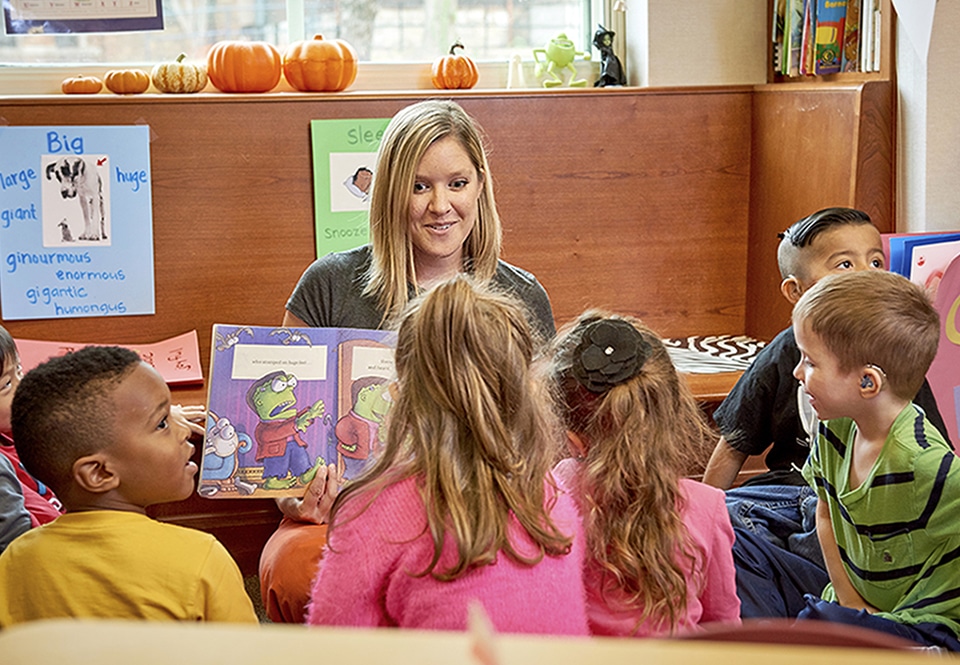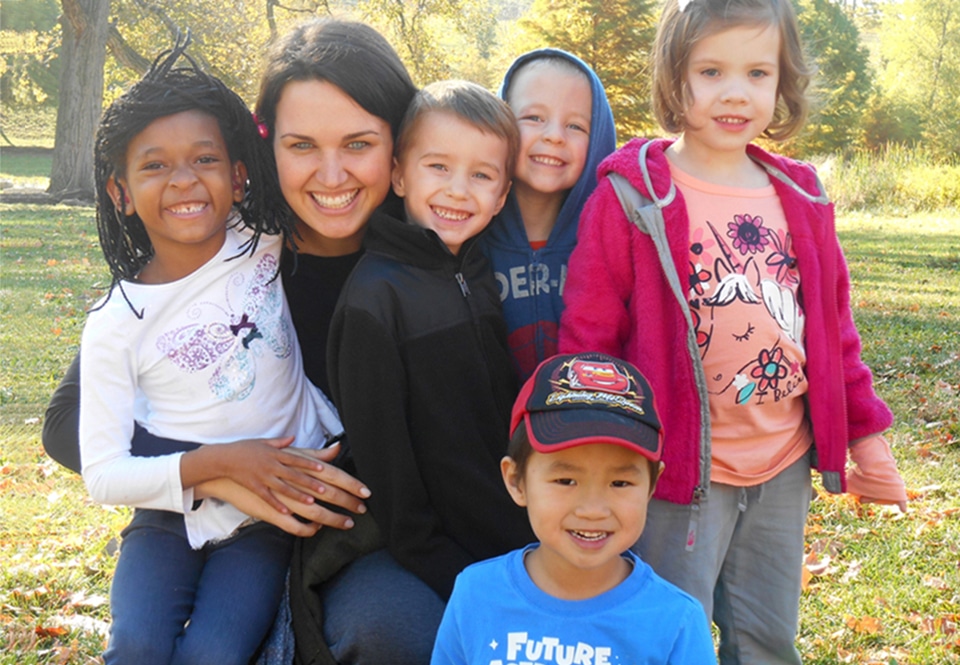A TYPICAL DAY IN KINDERGARTEN
Device Check
Teachers begin the day by welcoming the children and parents and taking attendance. The children unpack their lunches and put away their belongings while the teachers check their devices to ensure optimal access to sound. Each child engages in a brief morning activity such as independent reading, a puzzle, a journal or a math activity.
Circle Time
The children and teachers welcome one another with a song and prepare for a great day at school. During the calendar activity, the teachers integrate areas of reading, writing, technology, math, science and social studies. The class discusses weather, days of the week, months of the year, patterning, odd and even numbers, counting by ones and tens, weather and temperature.
 Reading
Reading
Reading ability is highly correlated with success in school and success in life. Students receive direct instruction in the five key components at the core of effective reading instruction: phonemic awareness, phonics, fluency, vocabulary and comprehension. CID implements a comprehensive, evidenced-based reading curriculum designed to provide structured, sequential and cumulative opportunities for learning and practicing essential foundational reading skills.
Language
During our kindergarten language classes, teachers explicitly teach syntax skills to small groups using the students’ individual IEP goals and our comprehensive Teacher Assessment of Grammatical Structures (TAGS) rating form. We use age-appropriate activities and games to promote language development.
Recess
The children run, jump, climb and play on our state of the art playground to encourage fitness, movement and social skills.
Writing
In addition to receiving written language opportunities during the reading period, CID kindergarteners receive 30 minutes of intensive literacy instruction in accordance with Missouri Learning Standards. Students learn “What I can say, I can write, and what I can write, I can read.”
PE & Special Activities
Similar to the general education setting, CID kindergarteners participate in special classes and activities to enhance their school experience. They engage in art, music, library, physical education and social skills in slightly larger groups to promote creativity, fitness, interactive learning and problem solving.
Lunch & Recess
Washington University School of Medicine graduate students supervise the children’s’ lunch and recess. After lunch, the children run, jump, climb, play with balls and engage in group games and activities to develop physically and to build confidence. Our full-size gym, adjacent field and private, state-of-the-art playground are great places for kids to keep moving and socializing. Nearby Forest Park offers a variety of playgrounds, playing fields and natural settings to explore.
Centers, Writing & Literature
The relationships among language, cognition, play and literacy are well-documented in educational research. The language and cognitive skills developed through play lead to higher achievement in literacy. CID kindergarten teachers use this important time to provide engaging opportunities for play that foster listening, language, speech, social skills and cognitive development. Students also participate in activities that provide specific practice of beginning academic standards, including reading comprehension (through teacher read-alouds) and beginning writing skills.
Speech & Auditory Training
Students work in groups of 1-2 for targeted work to continue to develop individualized speech and listening skills.
Math
Students engage in language-focused lessons with emphasis on grade-level Missouri Learning Standards.
Content (Science/Social Studies)
Missouri Learning Standards and commercial curricula determine our kindergarten goals for teaching beginning academic content. Units of study focus on instructing the students to learn new information and vocabulary and use it to express their understanding of taught kindergarten concepts.
After School Activities
After school activities are often a casual extension of a child’s language and social skills practice at the end of the school day. Tennis, pickleball, ukulele and Lego classes have been offered as opportunities to promote student growth and confidence in their areas of interest.
 Children grow and learn in CID kindergarten. We prepare each child for success in a general education environment by providing individualized instruction to develop listening, language and speech while focusing on all areas of academic development based on Missouri Learning Standards.
Children grow and learn in CID kindergarten. We prepare each child for success in a general education environment by providing individualized instruction to develop listening, language and speech while focusing on all areas of academic development based on Missouri Learning Standards.
 Reading
Reading